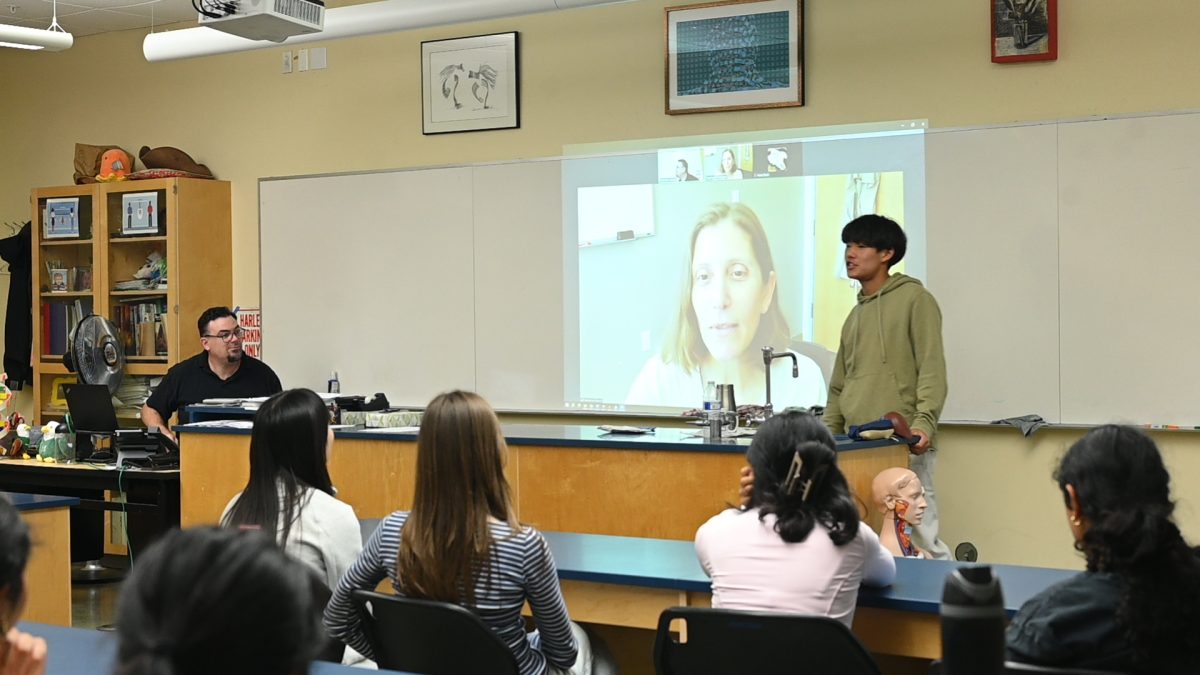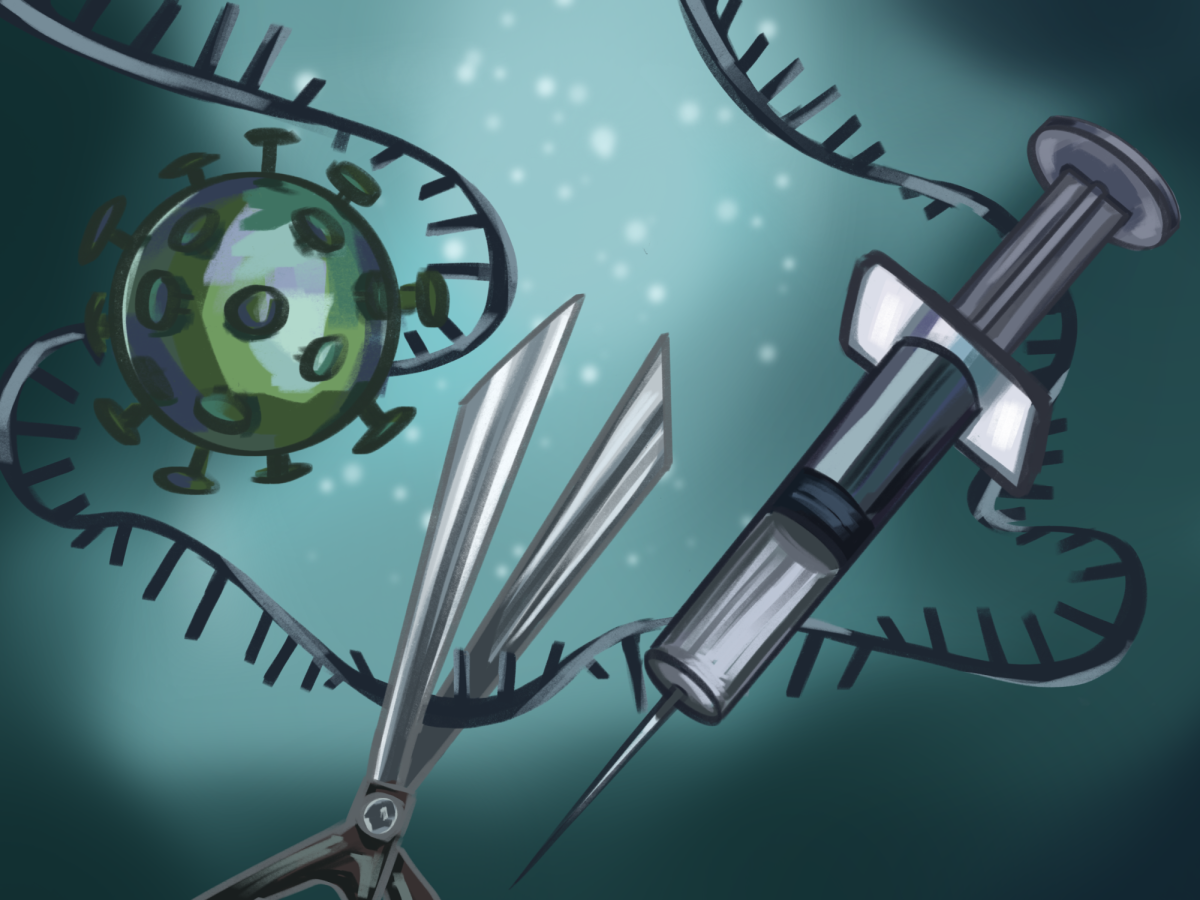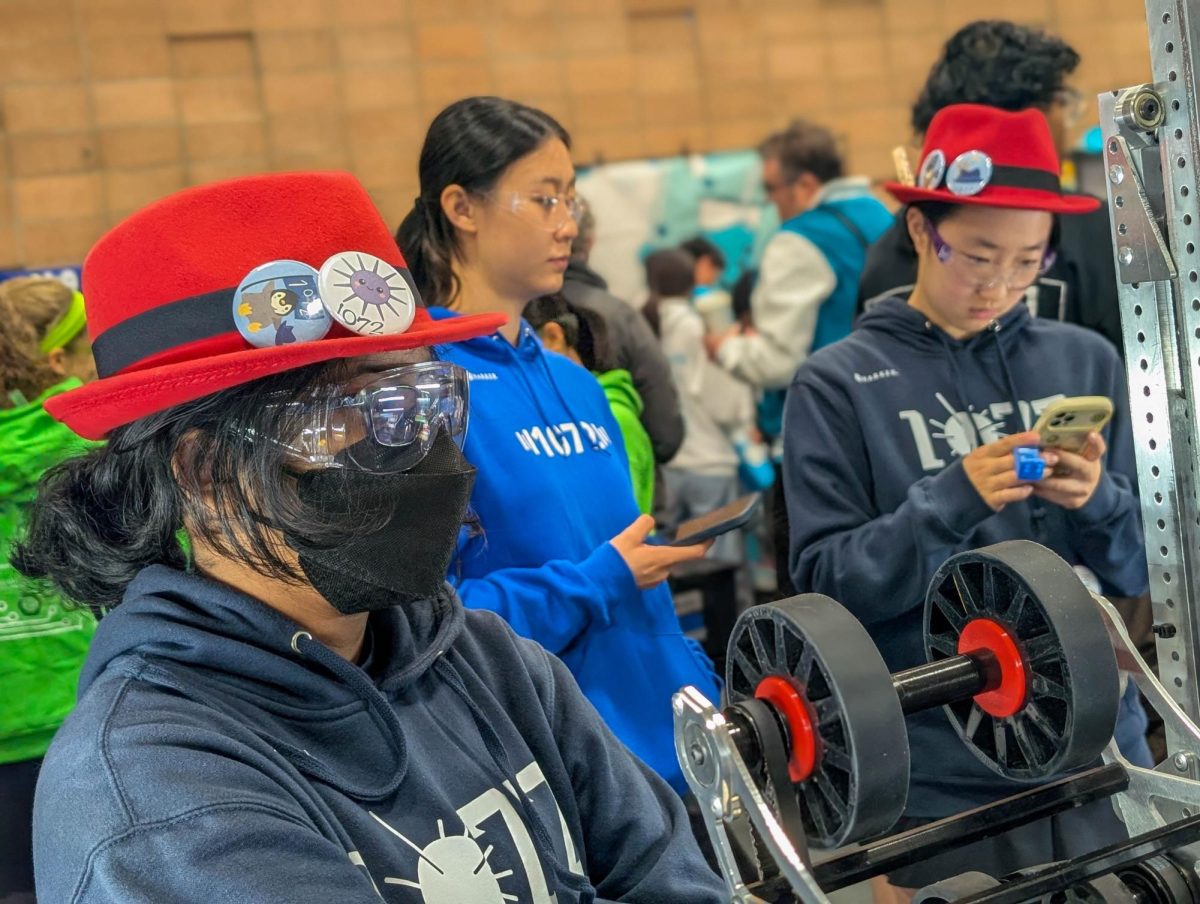Former Harker English teacher Marjorie Hazeltine gave an informative workshop on sustainable fashion hosted by the Fashion Business Club and Green Team on Oct. 29.
Hazeltine debunked the misconception that the fashion industry solely focuses on profit and disregards environmental impact. A growing number of modern fashion companies are currently shifting towards sustainable practices, promoting the use of eco-friendly materials like organic linen and recycled and organic cotton.
“It’s nice to see that you can be trendy and dress well and then also care about the environment and do it in a sustainable way,” Fashion Business club officer Audrey Dagum (11) said. “A lot of people think that it’s either one or the other, that you can buy clothes but that’s bad for the environment, or you don’t buy clothes at all.”
However, creating a sustainable fashion industry requires overcoming certain obstacles. Each type of textile fiber has a different recycling process, making clothing recycling especially difficult and expensive. Hazeltine introduced attendees to the Responsible Textile Recovery Act, or SB 707, a Califiornia bill which works to address this issue by requiring apparel and textile producers to take responsibility for the entire lifecycle of their products. By creating a system of responsible textile disposal, SB 707 aims to minimize the environmental impact of fast fashion and textile waste.
“[SB 707] is forcing people to consider the end game of clothing at the beginning,” Hazeltine said. “If I were a company, I’d be like, ‘You know what, I’m not going to make a shirt out of this blend material because we don’t have a process for recycling it. Instead we’re gonna do 100% cotton or 100% polyester that we know we can recycle or chemically decompose.’”

With the growing prevalence of consumer culture, she invited participants to brainstorm potential sustainable business ideas surrounding the clothing industry. She encouraged students to buy from companies like Depop, a reliable online re-selling marketplace, and Nooworks, a sustainable and environmentally friendly apparel company.
Hazeltine emphasized the importance for each student to do their part and seek out ways to incorporate sustainable fashion practices into their daily routines.
“Over the last 10 years, I’ve been trying to explore and practice different ways of consuming clothes in ways that didn’t leave such a huge environmental footprint,” Hazeltine said. “Taking a pause from buying things, borrowing clothes from friends, going to thrift stores, hosting a swap party at your house — personal actions can make a big difference if it becomes a wide scale movement.”
In the past year, Hazeltine has visited the upper school multiple times to educate students on important environmental topics, including fast fashion textile waste and clothing sustainability.
“It was really nice to see Ms. Hazeline again because she was one of my favorite teachers from middle school,” attendee Stellan Lindh (10) said. “We did a project in her class about sustainability, and it was interesting to hear more of her perspective on it today, especially since fashion plays such a big role in everyday life.”


















![“[Building nerf blasters] became this outlet of creativity for me that hasn't been matched by anything else. The process [of] making a build complete to your desire is such a painstakingly difficult process, but I've had to learn from [the skills needed from] soldering to proper painting. There's so many different options for everything, if you think about it, it exists. The best part is [that] if it doesn't exist, you can build it yourself," Ishaan Parate said.](https://harkeraquila.com/wp-content/uploads/2022/08/DSC_8149-900x604.jpg)




![“When I came into high school, I was ready to be a follower. But DECA was a game changer for me. It helped me overcome my fear of public speaking, and it's played such a major role in who I've become today. To be able to successfully lead a chapter of 150 students, an officer team and be one of the upperclassmen I once really admired is something I'm [really] proud of,” Anvitha Tummala ('21) said.](https://harkeraquila.com/wp-content/uploads/2021/07/Screen-Shot-2021-07-25-at-9.50.05-AM-900x594.png)







![“I think getting up in the morning and having a sense of purpose [is exciting]. I think without a certain amount of drive, life is kind of obsolete and mundane, and I think having that every single day is what makes each day unique and kind of makes life exciting,” Neymika Jain (12) said.](https://harkeraquila.com/wp-content/uploads/2017/06/Screen-Shot-2017-06-03-at-4.54.16-PM.png)








![“My slogan is ‘slow feet, don’t eat, and I’m hungry.’ You need to run fast to get where you are–you aren't going to get those championships if you aren't fast,” Angel Cervantes (12) said. “I want to do well in school on my tests and in track and win championships for my team. I live by that, [and] I can do that anywhere: in the classroom or on the field.”](https://harkeraquila.com/wp-content/uploads/2018/06/DSC5146-900x601.jpg)
![“[Volleyball has] taught me how to fall correctly, and another thing it taught is that you don’t have to be the best at something to be good at it. If you just hit the ball in a smart way, then it still scores points and you’re good at it. You could be a background player and still make a much bigger impact on the team than you would think,” Anya Gert (’20) said.](https://harkeraquila.com/wp-content/uploads/2020/06/AnnaGert_JinTuan_HoHPhotoEdited-600x900.jpeg)

![“I'm not nearly there yet, but [my confidence has] definitely been getting better since I was pretty shy and timid coming into Harker my freshman year. I know that there's a lot of people that are really confident in what they do, and I really admire them. Everyone's so driven and that has really pushed me to kind of try to find my own place in high school and be more confident,” Alyssa Huang (’20) said.](https://harkeraquila.com/wp-content/uploads/2020/06/AlyssaHuang_EmilyChen_HoHPhoto-900x749.jpeg)



![Former Harker English teacher Marjorie Hazeltine explains the Responsible Textile Recovery Act, or SB 707, a Califiornia bill which requires apparel and textile producers to take responsibility for the entire lifecycle of their products. “[SB 707] is forcing people to consider the end game of clothing at the beginning,” Hazeltine said.](https://harkeraquila.com/wp-content/uploads/2024/11/DSC_4253-e1730521261951-1200x819.jpg)






